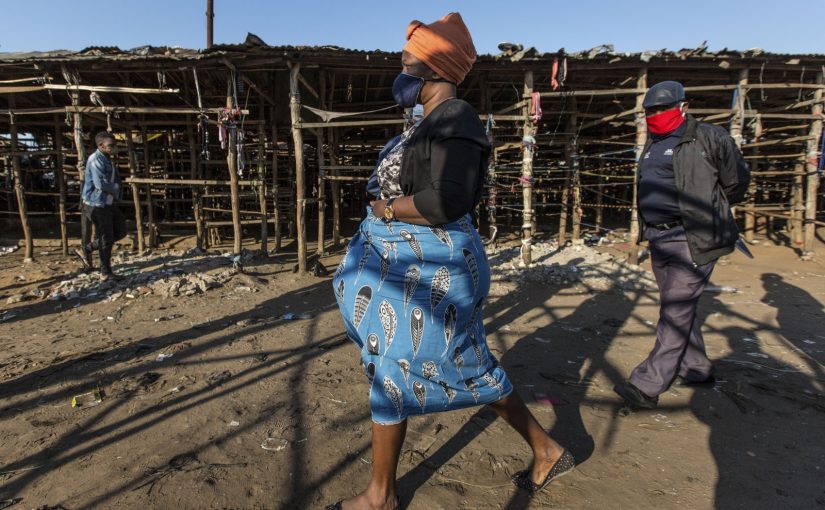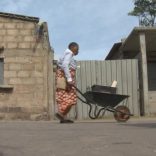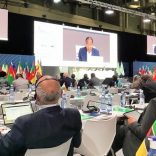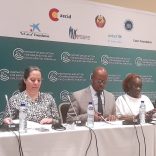Mozambique: Meet Vovó Cecília, who runs a mobile library in Mafalala at the age of 75 - Watch
Mozambique: Government warns again that tougher measures may be taken – AIM report

The Mozambican government is concerned that the protective measures against the Covid-19 pandemic, imposed under the current state of emergency, are being widely disrespected.
Speaking to reporters on Tuesday, at the end of a meeting of the Council of Ministers (Cabinet), the government spokesperson, Deputy Justice Minister Filimao Suaze, said “the balance we draw up is negative, since once again we have noted, and with great concern, the lack of respect for the main measures”.
In particular, people are not respecting the insistent calls for social distancing of at least 1.5 metres, for the use of masks in crowded places, and for staying at home except in cases of great need.
He repeated the warning made by the government last week that, if the current measures are not fully applied, then the government could impose even tougher ones. He did not give examples – but it is easy to imagine that the government, instead of merely urging people to stay at home, could make it illegal to leave home without a good reason, and could ban outright certain forms of transport (between provinces or districts, for example).
Suaze gave no date for this possible imposition of tougher measures. “On any day that the measures are announced, they will be in force during the state of emergency”, he said. “So they will be for a possible new emergency period”.
The state of emergency began on 1 April, and has been extended twice. It will now expire on 30 June. The Constitution states that a state of emergency can be declared for a maximum of 30 days, and “may be extended by up to three equal periods, if the reasons determining the declaration persist”.
The President declares the state of emergency or its extension, but it must be ratified by the plenary of the country’s parliament, the Assembly of the Republic. An Assembly sitting ended earlier this month – so, if the government wants a third extension of the state of emergency, all the deputies must be called back to Maputo for an extraordinary sitting.
Suaze did see some bright spots. He was pleased at the reorganisation of markets, notably in Maputo, to make them safer and less likely to transmit Covid-19, and stressed that the public have accepted the changes (which include social distancing between stalls and between stallholders and customers, and the obligatory wearing of masks by stallholders and clients alike).
Asked about a possible reopening of the schools, Suaze said the Ministry of Education and its partners are working to ensure that schools are adequately prepared to implement measures of prevention against Covid-19. But there is no date for restarting classes.
“Nobody spoke about reopening the schools in this meeting of the Council of Ministers”, he said.
A survey undertaken by the Civil Society Forum for Children’s Rights (ROSC) claimed that 70 per cent of parents and children are afraid of the reopening of schools without conditions to make children safe from Covid-19.
ROSC held this poll from 5 to 12 June, using digital platforms – which means it excluded the great majority of Mozambican parents and children, who have no access to computers or to smart phones.
According to a summary in the independent daily “O Pais”, the ROSC survey consulted 8,800 parents and guardians and 722 children of school age. The majority of this sample advised against an early reopening of schools, for fear that children might be contaminated by Covid-19 at school or on public transport. They also pointed to lack of basic hygiene in many schools – a critical factor since a key weapon in the fight against Covid-19 is regular washing of hands with soap and water.
A smaller group wanted children, particularly those in grades which have exams this year, to return to school rapidly – because they are not assimilating the material taught by distance learning over radio and television.
A ROSC spokesperson interviewed on Wednesday by the independent television station STV, argued passionately that schools should not be reopened – but the major problem with the ROSC argument is that it does not look at what children are doing in the here and now. In all major cities, children, far from staying at home and attempting to study, are roaming the streets and the markets (sometimes sent by their parents to buy and sell items in informal trading).
In these conditions, children are already exposed to possible infection by Covid-19.












Leave a Reply
Be the First to Comment!
You must be logged in to post a comment.
You must be logged in to post a comment.